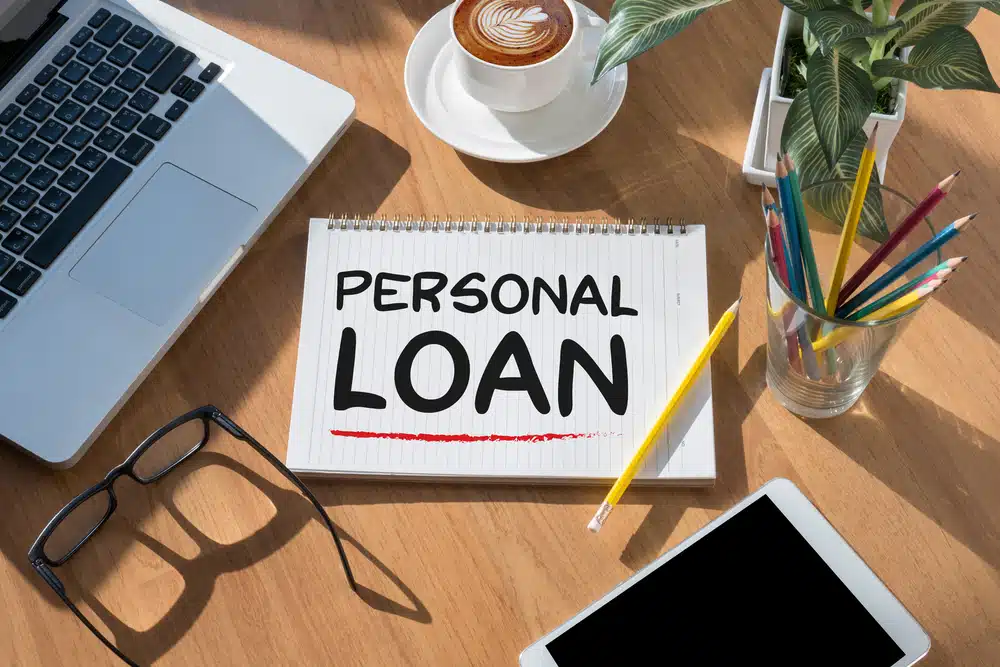
It’s important to note that personal loans are primarily based on your personal credit history and income, which means your personal financial situation significantly influences your eligibility. Using a personal loan for business purposes entails personal liability, putting your personal assets and credit score at risk if your business struggles to repay the loan.
The loan amounts may also be smaller, and interest rates can be higher compared to business loans. Furthermore, personal loans often come with shorter repayment terms, and there could be legal and tax implications to consider.
Therefore, it’s crucial to carefully evaluate your financial needs and risks before opting for a personal loan for your business or explore business loan options designed to meet the unique financial requirements of your enterprise
Can I really acquire a personal loan for my business?
Yes, it’s important to note that some personal loans can indeed be used to fund a new or existing business. Potential borrowers should exercise caution and carefully review the terms and conditions of the loan before proceeding.
It’s crucial to ensure that the lender does not impose any restrictions on using the personal loan for business purposes. Lenders typically outline specific use cases for their personal loans, with some permitting commercial uses and others not. To avoid any complications, if you’re unsure whether a lender allows the use of a personal loan for business, it’s advisable to be transparent about your intentions when communicating with the lender.
Review the fine print, and if there is still uncertainty, it’s better to inquire directly with the lender, asking, “Can you use a personal loan for a business?” rather than concealing your true intentions.
Lenders may require immediate repayment of the borrowed amount and the associated interest if they discover that the loan was used for a prohibited purpose. Being forthright can help you make an informed borrowing decision and prevent any potential repercussions
When might I want a personal loan for business purposes
Many established businesses seeking financial assistance often opt for traditional business loans. For start-ups or businesses with limited trading history, obtaining a business loan can be challenging due to stringent eligibility criteria, including a minimum trading period and annual revenue requirements.
Some specialist business loans cater to start-ups, but not everyone qualifies. In such cases, individuals may turn to personal loans to fund their business ventures.
Personal loans can be a viable option for various scenarios, such as:
- Funding a side hustle or new business venture.
- Acquiring capital for small-scale business needs.
- Financing short-term business projects or investments.
- Covering initial startup expenses.
Unlike business loans, personal loans are disbursed to individuals, and eligibility is primarily determined by your personal credit score, financial situation, and income, rather than business-related factors. However, it’s crucial to understand that with a personal loan:
- You bear personal liability for repayment, regardless of business performance.
- The loan is in your name, potentially affecting your personal credit rating.
- Smaller loan amounts are typical.
- Application and approval processes can be quicker.
Ultimately, choosing between a business loan and a personal loan requires a careful assessment of your financial condition and business needs. Researching various lending options can help you determine the most suitable choice for your specific situation
Personal loans for business startups
An excellent option for those seeking a personal loan tailored for business purposes is the government-backed Start Up Loan program. Interestingly, these Start Up Loans, despite their business focus, fall under the category of unsecured personal loans.
Their primary aim is to assist new businesses in securing essential funding, which can be allocated for a diverse range of projects, including marketing initiatives, purchasing stock, or acquiring necessary equipment.
The flexibility of these loans allows businesses to apply for varying loan amounts and terms, and they can also benefit from additional mentoring and support to foster their growth.
To access a Start Up Loan, your application should encompass detailed information about your business and a clear outline of how you intend to utilize the loan, including the submission of a comprehensive business plan and cash flow forecasts. Similar to conventional personal loans, applicants will undergo a credit check to assess their creditworthiness and must demonstrate the ability to meet repayment obligations, even in cases where business operations encounter unexpected challenges.
This combination of business-focused support within the framework of a personal loan makes Start Up Loans a valuable resource for aspiring entrepreneurs and new businesses
Who qualifies for a personal loan?
To secure most personal loans, a solid credit score is a prerequisite. Additionally, a consistent source of income is essential to provide lenders with the assurance that you are capable of meeting repayment obligations.
While there are bad credit loan alternatives accessible, they often entail elevated interest rates. Moreover, these loans frequently impose more stringent restrictions, potentially disallowing borrowers from utilizing the funds for business-related endeavors.
Will a personal loan for business purposes be tax-deductible?
Yes, there is a possibility for interest payments on your loan to be considered deductible business expenses for tax purposes, provided you maintain proper documentation and meet specific criteria.
To make this work in your favor, it’s essential to maintain meticulous financial records, including detailed accounts of your expenditures and a clear connection between these expenses and your business activities. This proactive approach can potentially lead to tax benefits while keeping your financial affairs well-organized and compliant.
MORE: Are UK business loan repayments tax-deductible?
Pros and cons of getting a personal business loan
To offer a comprehensive overview of personal business loans and their potential advantages and drawbacks, we’ve created a table outlining the pros and cons of opting for a personal loan in lieu of a conventional business loan:
| Pros of Personal Loan for Business | Cons of Personal Loan for Business |
|---|---|
| 1. Simplicity: Easier application process, often with faster approval. | 1. Personal Liability: Your personal assets and credit at risk if business struggles. |
| 2. Versatility: Use for various business needs, such as marketing, equipment, or expansion. | 2. Loan Limits: Smaller loan amounts compared to business loans. |
| 3. Credit-based: Approval primarily based on personal credit score and financial situation. | 3. Higher Interest: Interest rates may be higher than some business loans. |
| 4. Speed: Quicker access to funds may suit businesses with immediate financial requirements. | 4. Shorter Terms: Repayment periods are often shorter than business loans. |
| 5. No Business History: Suitable for startups or businesses with limited trading history. | 5. Legal Implications: Potential legal and tax ramifications to consider. |
| 6. Privacy: Business and personal finances separated. | 6. Risk Assessment: Risk of using personal assets to secure the loan. |
| 7. Limited Documentation: Fewer business-related documents required. | 7. Eligibility Criteria: May not qualify for certain types of personal loans. |
This table can serve as a valuable reference to help you weigh the benefits and drawbacks of choosing a personal loan for your business, aiding in your decision-making process based on your specific financial situation and business needs.
Five Different Options
- Outside Investment: The digital landscape has not only broadened our investment horizons but also provides opportunities to connect with angel investors and venture capital investors through platforms like LinkedIn, making it easier to secure external funding for your business.
- Credit: Credit cards offer a means to access short-term financing for your business needs, such as purchasing equipment. Keep in mind that easily approved credit cards often come with higher interest rates. To mitigate this, consider taking advantage of limited-time offers, some of which provide 0% interest during a trial period, but ensure to repay the balance before interest charges kick in. Failure to do so can make credit card borrowing an expensive option.
- Government Grants: Government grants are a safe and appealing option for small business funding. They cater to a wide range of businesses and can serve as a vital resource, especially for those who might struggle to secure traditional loans or investments due to limited funds or expertise.
- Crowdfunding: Platforms like Kickstarter and GoFundMe enable entrepreneurs to reach out to a broad audience for financial support. With persuasive pitches, you can potentially meet or exceed your financial target, leveraging the power of crowdfunding.
- Save Disposable Income: Sometimes, the traditional approach of saving your own income can be highly effective. By setting aside a portion of your earnings in a separate account, you can accumulate the required funds over time. This strategy is particularly suitable for individuals with moderate to high incomes and few financial commitments who prefer a low-risk, creditor-free approach to funding their business endeavors.
Frequent asked questions
Can a personal loan be used for business purposes?
Yes, personal loans may be used for business purposes, but not all lenders permit this, so check in advance.
Can a sole trader use a personal loan?
Yes a sole trader can use a personal loan, you can apply for this type of loan without needing to secure the amount you're borrowing against any assets you own. You will need a good credit record if you want a self-employed personal loan.
Is it worth it?
As in all aspects of life, when contemplating a loan, it’s vital to ask yourself: Do I genuinely need it? While approval for a personal loan tailored for business purposes isn’t guaranteed, individuals who conduct thorough research and maintain transparency about their objectives might discover a variety of personal loan options suitable for commercial use.
Prioritizing lender comparisons and exploring different funding avenues is crucial. You should assess the amount of funding required, the urgency of your needs, and your current financial situation. No matter the path you choose, it’s essential to verify your eligibility before applying.
A rejected credit application or failure to repay any loan can have a detrimental impact on your credit score and lead to serious financial consequences. So, approach this decision thoughtfully, keeping your overall financial well-being in mind.
Jarred Musson is a versatile writer with a diverse educational background and a passion for all things business. Holding a Master of Science (MSc) degree in Marketing and a Bachelor of Arts (BA Hons) in Multimedia Journalism from Manchester Metropolitan University, Jarred possesses a unique blend of expertise that allows him to dissect and communicate complex business topics with clarity and precision.


